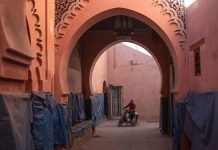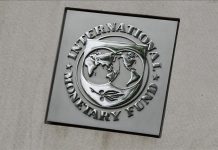Africa-Press – Mauritius. If even today parents who take their five-year-old son to the hospital are devastated by the announcement of his death following an injection, there is much to debate about the efficiency of the health service. Public health should be an ongoing concern as unexplained and all too recurrent deaths in hospitals destroy the lives of families and loved ones.
Everyone knows that the health services were overwhelmed with patients with Covid-19 during the last months before December 2021, and that this was not always without consequences, sometimes even tragic, for other patients.
If, at first, the public accepted the idea that the media amplified the problem to discredit the authorities concerned and damage the image of the country with the deliberate aim of dealing a dirty blow to the tourism sector and weakening the economy, the number of deaths in each locality, without any valid explanation, has caused legitimate concern.
Too many people have watched their loved ones go to the hospital when they had an extremely mild symptom of a chronic illness or some other minor annoyance and, surprisingly, did not come back alive.
Apart from the radios which allow them to express their distress and their suffering, has there been a real desire to carry out an in-depth investigation into the causes of these deaths and to provide a report in good and due form to the bereaved families and to ministry officials?
2020 is far behind us: at that time, we applauded the hospital staff and thanked them for their dedication to the public at a time when private clinics with staggering prices played absentee subscribers.
The question today was the same a few decades ago, despite advances in hospital service, modern medical equipment, new services set up to treat various health problems, better reception of patients, etc.
The late Minister Kishore Deerpalsing had restored order in a sector where the shortcomings were glaring. Indeed, some patients return satisfied with their hospital stay, both in terms of care and the level of attention given to them.
In some cases where they are psychologically weakened due to destructive family relationships, they appreciate the help provided by the hospital psychologist.
The latter takes care of them with humanity and compassion. Others are grateful after successful surgery. The service is free and available to the general public unlike the richest democracy in the world where medical care depends on your private insurance.
Otherwise, zero care in the United States. It is not a question of throwing stones at a key sector of the public service. The aim is to reassure the population, answer their questions and establish or restore public confidence in the hospital service.
(a) First, the famous injection that sends too many people into the afterlife into the abode of the Vedic god Yama, in the underworld of Hades from Greek mythology, if he is still known to our days, or in the domain of souls who wait for the patriarch of heaven and earth to decide their fate, for others.
What’s in this injection to be so lethal? (b) Then, some locally made drugs that cause tremors, weakness and nausea. . . If we get to the point where we avoid hospitals like deathbeds, and drugs like poison, we have to ask questions and demand answers.
What happens in the event of an erroneous diagnosis that leads to an unnecessary operation and a gratuitous death? In such cases of suspicion and doubt, the doctor/nurse-patient relationship cannot be reduced to a condescending and contemptuous “Are you a doctor?” that shuts down adults who are treated like retarded children.
In the age of the Internet, it is forbidden to ask awkward questions to those who think they hold the monopoly of medical science. It is to forget that health is a service and that personnel are employed to serve the public.
There is an urgent need not only for the needless deaths but also for the thousands employees hired and fired with a vengeance in hotels; they were hoping for good days when the scarlet red list sent the country tumbling down the ladder of frequentable destinations.
Even though France wanted to protect its nationals and those of La Réunion from the Mauritian hospital service, this red list with varying shades left us perplexed.
At the beginning of December, the number of hospitalized patients was in sharp decline in Mauritius while it was the explosion in France and its neighboring department at the same time and still now.
There was no logic in lifting the ban in France and maintaining it for Reunionese. Result: a massive blow for the tourist sector of Mauritius with thousands of reservations of bungalows and hotels canceled across the island.
From 800 reservations, a hotel in the north has grown to fifty tourists. Maurice took the hit. Supermarket chains in Reunion filled their coffers beyond the festive period.
There is a good chance that the thirteenth month of Réunionnais has benefited car importers, a sector that finances local political parties. When the economy is at half mast everywhere, it’s every man for himself, first. And decisions are made in the high sphere of economic lobbies, above the heads of local administrators and the general public.
Maurice has certainly taken note that Réunion Première broadcast a report on Tromelin presenting the island as the smallest territory of the French republic two days after the government put the future of Tromelin back on the table.
It was in December. No more no less. Geopolitics has pointed its nose in a context of health crisis and great economic difficulties that Mauritius is struggling to manage.
And this despite the apparent cooperation of France, through India, in joint military training with the Mauritian army to counter the power of Communist China, the red devil of the Americans.
It would also be necessary to sort through all these geopolitical antics to manufacture enemies, and which benefit the armament industry of the great powers, such as, for example, the billions of euros collected by France in the sale of planes of Rafale war in India.
Like the leopard that does not change spots, the imperialist appetite of the former colonizers has remained intact. Basically, neither China nor India are welcome in an ocean space coveted by the West.
There was a time when the intellectual circle of Reunion would have reacted to this posture of Paris, but the voices have been silent for many years. Our dependence on certain clienteles in the tourist sector, and on tourism in general, needs to be reviewed.
The ministers’ tour of Dubai serves to find investment and other profitable niches for the country’s economy, it is presumed. Sooner or later, will the question of Tromelin and other islands be brought up to date jointly by Madagascar and Mauritius in international bodies?
For More News And Analysis About Mauritius Follow Africa-Press







